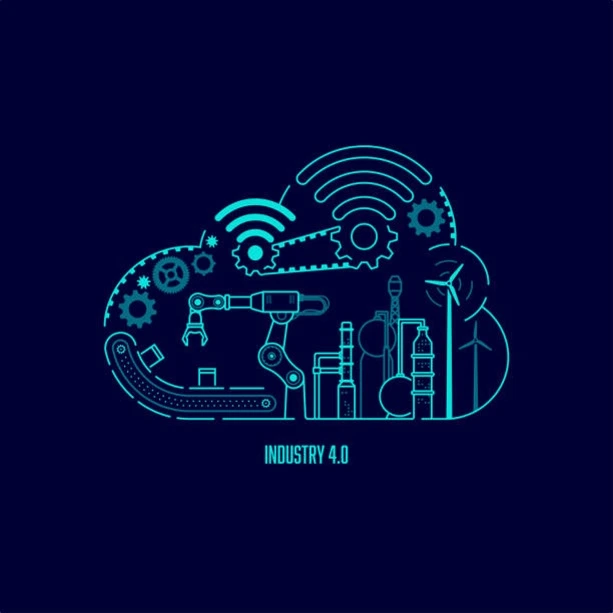What Is Industry 4.0?
Industry 4.0, or the Fourth Industrial Revolution, describes the current stage of technology that predominantly involves increased automation and connectivity. Industry 4.0 combines IoT with various components of manufacturing processes. Industrial IoT or (IIoT) provides a connection between the physical and digital world. This smart technology is enhancing the way business is done. Industry 4.0 is completely changing business processes and practices.
The History of Industry 4.0
Over the last several centuries, industrial processes have undergone three major revolutions. In 1765, steam power increased the amount of production a manufacturing facility could produce. The second industrial revolution began around 1870 with gas and oil. These two fuel sources allowed electricity to be a dependable source of energy.
Around the same time, Henry Ford popularized the assembly line process. Nuclear power was a vital part of the third industrial revolution in 1969. The technology used in computers also was used to make processes quicker and increase communication. Today, we see the fourth industrial revolution using artificial intelligence and automation to connect the physical world to the internet.
Join the AirFinder Difference!
- Innovation. Organizations can be freed up to innovate and bring more impactful products and services to market.
- Profitability. Increased profitability provides new opportunities to innovate and improve valuation.
- Digital Transformation. Discover competitive advantages, new revenue opportunities, improved customer relationships, and increased efficiency.
Benefits of Industrial Revolution
The fourth industrial revolution has brought significant ROI to the world of manufacturing. These advancements have benefited not only the businesses involved but also the customers. Smart manufacturing has allowed for a greater emphasis on automation for various industrial processes. First of all, this technology has given more transparency. When connecting assets to the internet, managers can have real-time visibility. IoT devices can monitor equipment.
This visibility makes it easier to find and fix the bottlenecks. A company utilizing the technology of industry 4.0 can increase profits. When a production process becomes more efficient, contracts are easier to complete. With more time comes the opportunity for more contracts. A growing number of companies are using this technology, so it is necessary to stay competitive and gain an advantage.
Applications of Industry 4.0
With technologies such as cloud computing, robotics, automation, and data technology, companies can track problems during the manufacturing process. Imagine resolving problems before they occur. An organization can use this data technology to have greater supply chain management.
If a company wants to track valuable assets, the Internet of Things takes away the need for guessing. Asset tracking tags in the warehouse can help with the shipping process. Link Labs provides a solution to the problem of tracking assets properly. The AirFinder Everywhere can track assets indoors and outdoors. The platform is connected to the cloud and will notify the user based on location, movement, or items leaving their zone. This IoT device is reliable and requires less maintenance, with a battery that lasts 3-7 years. AirFinder Everywhere can track expensive equipment, improve efficiency, track work in process and inventory. Overall, AirFinder Everywhere will give ease of mind to the company and the end-user.
In Summary
The industrial world has changed immensely and grown over the years. Work has become more efficient, and products have improved due to better technology. Industry 4.0 is no different, as automation, IoT and connectivity of devices has made work more efficient and profitable. Link Labs is a part of this growing shift in the industrial world. Want to learn more about the AirFinder Everywhere and our other products? Click this link to learn more and book a demo.




